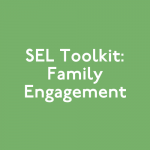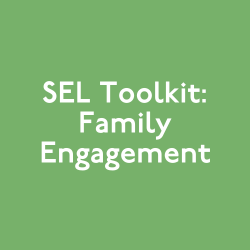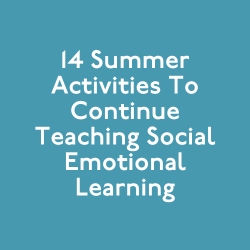What is parent engagement?
There is a wide spectrum of ways that parents can engage with their child’s education. Without even stepping foot in the building, parents can deepen conversations at home about the school day. Spend time each day listening to your child talk about their day, asking questions and expressing genuine interest. This is a great way to get to know your child and their thoughts and feelings about school, but is also a helpful way to gain insights in your child’s experience at school and ways they may benefit from additional support. Are they always complaining about school lunch? Maybe you start packing lunch a few days a week. Do they dislike math? Maybe you spend some time looking over the math homework together.
There are also endless ways that parents can engage with their child’s school directly. Be in touch with teachers throughout the year and ask how you can best support them. Teachers may not explicitly ask for parent involvement, but when asked or prompted they will likely be able to come up with several ideas that would be helpful, like reading to the class on a Friday afternoon or helping update the bulletin boards. Finding ways to volunteer and be present on campus during the school day is a powerful way to more deeply engage with your child’s school community and educational experience.
What are the benefits of parental involvement in education?
There are many benefits of parental involvement in education including improving their academic performance and positively influencing a child’s attitude about school. Parents are a child’s first and most influential teacher. From getting to school on time to having the basic essentials to be successful during the school day to having support at home with homework, parents are the most critical factor in their child’s education. Any degree of parental involvement in education will benefit students. Think about it in the reverse – what impact does it have on students when parents are not involved in their education?
Students assume more responsibility than appropriate for their age, they may not have their basic needs met, they may not be in school on a regular basis, and the list goes on. Not every parent needs to be the class helper, showing up daily to offer classroom support. In fact, it’s healthy for students to have opportunities to build relationships and explore their interests in an environment with their peers.
Students with active parents feel supported, attend school more regularly, have the resources they need and feel a sense of safety and confidence.
Why parent involvement in education is important?
When you think about how parental involvement affect a child’s education, the reasons are obvious. Parents are a child’s first and most important teacher. Parents have the greatest influence on their children and how they think. When schools can partner with parents and gain their trust and involvement in the school community, students benefit. Some of the benefits of parental involvement in schools include more connected classrooms, happier teachers, more confident students, and a more cohesive school community.
How to increase parent engagement?
In order to identify how to increase parent engagement, you need to first better understand the barriers that are preventing parent engagement in your community. Everything from how you communicate with parents to the layout of your school could be a potential barrier for parent engagement. Are you relying on email communication when a majority of your parents prefer text messaging? Is your communication solely in English when a majority of your population speaks another language?
There are many safety regulations that make it challenging to freely enter school buildings, but when parents want to be present do they have welcoming access? Are they greeted with a friendly face at the front desk, or do they face a complicated series of locked doors with no guidance?
Once you identify the barriers that prevent parents from engaging in their child’s education, you’ll be able to better alleviate those barriers and increase parental engagement. The easiest way to start to identify those barriers?
- Ask parents.
- Send out surveys
- Make some phone calls
- Launch a poll on the website
There should be multiple ways that you connect with parents to better understand the barriers they face when engaging with your school.
Parent engagement and student success
Students are more engaged when their parents are more engaged. Again, this doesn’t mean that parents are on campus in their child’s classroom every single day, but parents should feel connected to their child’s educational experience and school community. Parents should know what’s happening at school, how their child is progressing and should have open lines of communication so they are easy to reach and can easily reach the school. Parents are ultimately the teachers that are most deeply invested in their students’ long-term success, so empowering parents to be engaged in their child’s education can have a huge positive impact on student success.
The Nation’s Leading SEL Company
Move This World is the leading provider of social emotional learning (SEL) multimedia experiences for students, teachers, and families. Our SEL programs are customized for PreK-12 students and are delivered through short interactive lessons with the goal of empowering students to navigate the rapidly-changing realities of their world – both in the classroom and throughout their lives. The impactful yet simple Move This World SEL curriculum allows educators and families to incorporate Social Emotional Learning into their schedules every day, without planning or prep.
Contact us to learn more about SEL Grants and bringing Social Emotional Learning to your classroom.
Related links:










